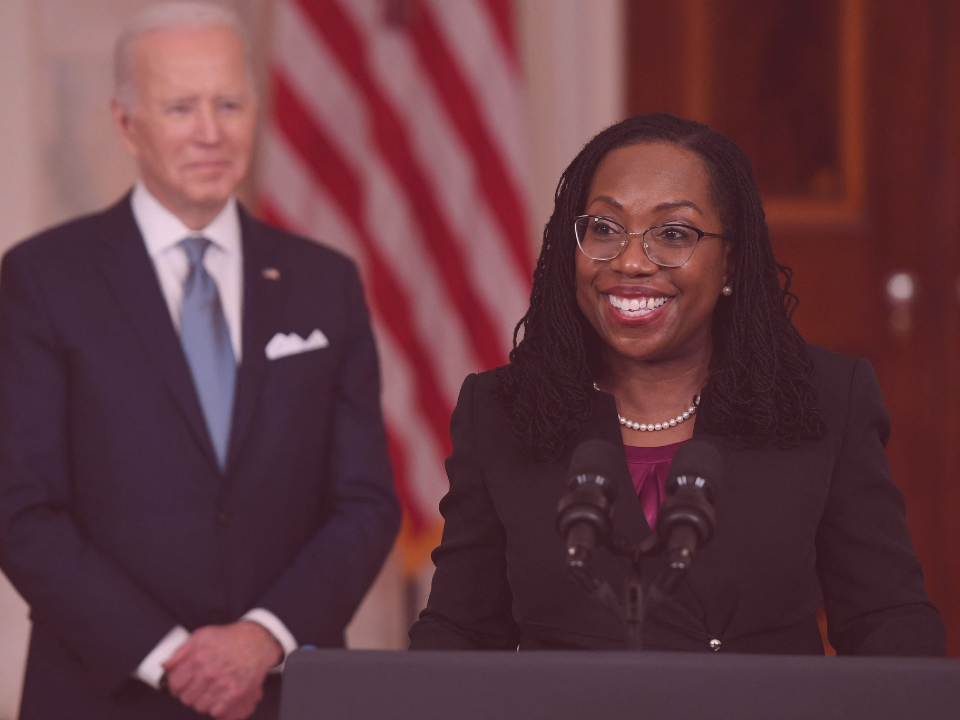It's exhausting to be a Black woman. Just ask Supreme Court nominee Ketanji Brown Jackson.
- Oops!Something went wrong.Please try again later.
I am exhausted. I am not exhausted because I am doing too much or working too hard. I am exhausted because the constant double standard placed on me, and other talented Black women, is an exhausting burden.
With the start of hearings for Supreme Court nominee Ketanji Brown Jackson, I keep wondering when exactly we will be considered good enough.
I grew up being told I had to be twice as good to get half as far. Now, twice as good is not enough. It is exhausting.
I have always had to prove myself in a way others did not. The summer before attending law school, a female attorney corrected me when I told her I would be attending Harvard. She replied with a smirk, “Oh no, deary, you mean How-ard.” Howard is an amazing institution, but I was not confused about my destination.
Questioned about qualifications
Like Jackson, I have worked diligently in my career. My first day of teaching as a law professor, I was asked by a young white female student what qualified me to teach them.
Opinions in your inbox: Get a digest of our takes on current events every day
I wish I could say I was surprised. I listed my qualifications and asked whether there were any additional questions. I then continued teaching. Sometimes ignorance can be ignored. Sometimes it has to be addressed head on.
Jackson’s qualifications are outstanding. Just ask Senate Republican leader Mitch McConnell, who noted that there was no question she is qualified, or the American Bar Association who ranked her as well qualified.
She graduated with honors from both Harvard College and Harvard Law School and was an editor on the prestigious Harvard Law Review.

She has worked at respected law firms and worked in public service. She served as a vice chair on the Sentencing Commission. She has served as a federal trial judge for nearly a decade and was rarely overturned.
She is also a Black woman. Jackson’s race and gender are important parts of who she is, and lived experience has value. Arguably, her race and gender are also why so many are looking for a reason to label her as unqualified.
'Please help us': Weary voices call from Mariupol, where bodies line streets
It would make more sense for some to claim that they disagree with her judicial philosophy. Sadly, that would not be as satisfying as trying to attack the character and intelligence of a Black woman, who is also a sitting federal judge and has received congressional approval on three occasions.
What is good enough?
For those who have chosen the more difficult task of trying to establish that one of the country’s most brilliant legal minds is unqualified, I ask this question: What is good enough?
Jackson authored more than 550 opinions during her tenure as a district court judge and was reversed only 11 times, which is a 2% reversal rate. That impressive statistic has not stopped conservatives from falsely claiming she was reversed at a high rate.
Her fairness and loyalty to the rule of law is demonstrated by her ruling both for and against the Trump and Obama administrations.
Violence in Mexico: Violence in Mexico is terrifying, but America has been complicit in that violence
Despite having more judicial experience than several of the sitting Supreme Court justices when they were nominated, some claim that she doesn’t have much of a record. What is good enough?
All Black women are doubted
I ask this question not only for Jackson and myself. Those who are questioning Jackson’s credentials are taking a swipe at all Black women.
I am asking for the Black women in the C-suite who are undervalued and unfairly criticized. I am asking for Black female lawyers who have been mistaken as bailiffs, clerks and defendants.
I am asking for the Black medical doctors who are undercut by other doctors and nurses and looked at with skepticism when they try to provide aid.
I am asking for Black academics who are always having to prove their competence and have tenure horror stories.
I am asking for every Black woman who has worked hard to survive in hostile environments only to be teased about her hair, her figure or her dialect.
Do we all need to display our birth certificates and our test scores to gain legitimacy? Once we do so, then what? The finish line will only move again as we get closer to crossing it.
The finish line for Black women is always a moving target, and that is truly exhausting.
Njeri Mathis Rutledge, a professor of law at South Texas College of Law in Houston, is a member of USA TODAY's Board of Contributors. Follow her on Twitter: @NjeriRutledge
You can read diverse opinions from our Board of Contributors and other writers on the Opinion front page, on Twitter @usatodayopinion and in our daily Opinion newsletter. To respond to a column, submit a comment to letters@usatoday.com.
This article originally appeared on USA TODAY: Kentaji Brown Jackson carries an exhausting burden as a Black woman

